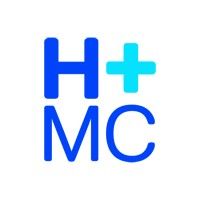预约演示
更新于:2025-05-07

Haaglanden Medisch Centrum
更新于:2025-05-07
概览
关联
60
项与 Haaglanden Medisch Centrum 相关的临床试验NL-OMON57217
Sexual function in endometriosis patients - SFIEP
开始日期2025-02-01 |
申办/合作机构 |
NL-OMON57087
Virtual Monoenergetic Imaging of the Lower Extremities Using Dual-Energy CT Angiography in Patients with Diabetes Mellitus: A Randomized Controlled Trial - DECTA of lower extremities in patients with DM: RCT
开始日期2024-12-01 |
申办/合作机构 |
NCT06359782
A Phase II Trial on the Safety and Efficacy of C1 Inhibitor for the Acute Management of Subarachnoid Hemorrhage
Aneurysmal subarachnoid hemorrhage (SAH) can lead to devastating outcomes for patients, like cognitive decline. This is caused by early brain injury (EBI) followed by delayed cerebral ischemia (DCI). Neuroinflammation, triggered by the complement system, has been investigated to be a key mediator in the pathophysiology of EBI and DCI. Inhibition of the complement system is therefore considered to be a potentially important new treatment for SAH.
This trial aims to study the safety and efficacy of C1-inhibitor Cinryze, an approved inhibitor of the complement system, compared to placebo in patients with SAH. By temporarily blocking the complement system we hypothesize limitation of delayed cerebral ischemia and a more favourable clinical outcome for SAH patients due to a decrease in the inflammatory response.
This trial aims to study the safety and efficacy of C1-inhibitor Cinryze, an approved inhibitor of the complement system, compared to placebo in patients with SAH. By temporarily blocking the complement system we hypothesize limitation of delayed cerebral ischemia and a more favourable clinical outcome for SAH patients due to a decrease in the inflammatory response.
开始日期2024-11-04 |
申办/合作机构 |
100 项与 Haaglanden Medisch Centrum 相关的临床结果
登录后查看更多信息
0 项与 Haaglanden Medisch Centrum 相关的专利(医药)
登录后查看更多信息
46
项与 Haaglanden Medisch Centrum 相关的文献(医药)2022-09-02·Expert Opinion on Drug Metabolism & Toxicology
The mysteries of target site concentrations of antibiotics in bone and joint infections: what is known? A narrative review
Review
作者: Muller, Anouk E. ; van Oldenrijk, Jakob ; de Winter, Brenda C.M. ; Bos, Koen ; Oosterhoff, Maartje ; Abdulla, Alan ; Zhao, Qiaolin ; Koch, Birgit C.P.
2021-11-08·Journal of Crohn's and Colitis1区 · 医学
Ustekinuma b for Crohn’s Disease: Two-Year Results of the Initiative on Crohn and Colitis (ICC) Registry, a Nationwide Prospective Observational Cohort Study
1区 · 医学
Article
作者: West, Rachel L ; Pierik, Marieke ; Biemans, Vince B C ; Jansen, Jeroen M ; Dijkstra, Gerard ; de Boer, Nanne K H ; van der Woude, C Janneke ; Straatmijer, Tessa ; de Vries, Annemarie C ; Haans, Jeoffrey J L ; Hoentjen, Frank ; van der Marel, Sander ; Oldenburg, Bas ; van Dop, Willemijn A ; Duijvestein, Marjolijn ; Visschedijk, Marijn C ; van der Meulen-de Jong, Andrea E ; Maljaars, P W Jeroen ; Bodelier, Alexander G L ; Ponsioen, Cyriel Y
2021-05-27·Journal of Crohn's and Colitis
P286 Ustekinumab for Crohn’s Disease: Two-Year Results of the Initiative on Crohn and Colitis (ICC) Registry, a Nationwide Prospective Observational Cohort Study
作者: Ponsioen, C Y ; Straatmijer, T ; Visschedijk, M C ; Hoentjen, F ; Biemans, V B C ; West, R ; Oldenburg, B ; Haans, J J L ; Bodelier, A G ; Jansen, J M ; de Vries, A C ; van der Meulen- de Jong, A E ; van der Marel, S ; van Dop, W ; van der Woude, C J ; Dijkstra, G ; Duijvestein, M ; Pierik, M ; Maljaars, P W J ; de Boer, N K H
100 项与 Haaglanden Medisch Centrum 相关的药物交易
登录后查看更多信息
100 项与 Haaglanden Medisch Centrum 相关的转化医学
登录后查看更多信息
组织架构
使用我们的机构树数据加速您的研究。
登录
或

管线布局
2026年02月28日管线快照
无数据报导
登录后保持更新
药物交易
使用我们的药物交易数据加速您的研究。
登录
或

转化医学
使用我们的转化医学数据加速您的研究。
登录
或

营收
使用 Synapse 探索超过 36 万个组织的财务状况。
登录
或

科研基金(NIH)
访问超过 200 万项资助和基金信息,以提升您的研究之旅。
登录
或

投资
深入了解从初创企业到成熟企业的最新公司投资动态。
登录
或

融资
发掘融资趋势以验证和推进您的投资机会。
登录
或

生物医药百科问答
全新生物医药AI Agent 覆盖科研全链路,让突破性发现快人一步
立即开始免费试用!
智慧芽新药情报库是智慧芽专为生命科学人士构建的基于AI的创新药情报平台,助您全方位提升您的研发与决策效率。
立即开始数据试用!
智慧芽新药库数据也通过智慧芽数据服务平台,以API或者数据包形式对外开放,助您更加充分利用智慧芽新药情报信息。
生物序列数据库
生物药研发创新
免费使用
化学结构数据库
小分子化药研发创新
免费使用